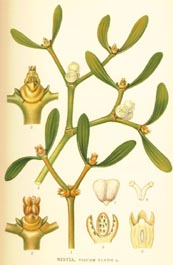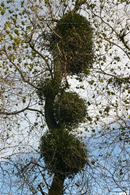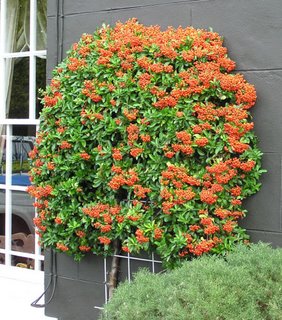Darkness and death upon the world are brooding—
The leaves of Autumn rustle, fade, and fall,
The seythe-like wind of Winter sweeps them all;
The gardens have put off their spring-tide dress,
And Nature is in tears,--while ice and snow
And her dull, chilling weeds of lonely woe,
Which to the world her clouding griefs confess.
My that is gloomy sounding isn't it? But since it is a quote from the times, I thought you might like it.
Clearly these folks have never seen a Canadian Winter. My recollections of this time of year in England are rain, grey skies and the odd crunchy frost.
Our diarist does note the beauty of the evergreen trees and their cones, such as firs and pines.
He also talks about the scarlet berries of the common holly. Holly has been used in the past as a herbal for gout, stones and urinary problems, as well as for chronic bronchitis, rheumatism and arthritis.
Caution -: The berries are mildly poisonous and are dangerous to small children.
 Holly is an evergreen tree. It can reach a height of 30 foot. It has smooth bark and green branches, which bear alternate dark green, shiny, leathery or waxy, spiny leaves. There is both a male and female of this tree with only the female producing the red berries.
Holly is an evergreen tree. It can reach a height of 30 foot. It has smooth bark and green branches, which bear alternate dark green, shiny, leathery or waxy, spiny leaves. There is both a male and female of this tree with only the female producing the red berries. 
Of course, given the season, no flora and fauna discussion would be complete without a mention of mistletoe. Did you know it is the only native English plant with white berries? No, nor did I. There is a whole website devoted to this beloved parasite. Hmm. Those two words just don't seem to fit together do they?


The Pyrancanthus, with its bunches of fiery berries on its dark green thorny sprays is still a popular bush and not just in England. Tt is a hawthorn and has white flowers in the spring. It is popular with birds and is another plant that has medicinal properties.

Of course at this time of year most of the countryside is resting. The trees are bare, the fields are ploughed into rough furrows and we are all sitting at home beside the fire reading by candlelight. Or we would be if we were living in Regency times.
I haven't decided what to work on for next week.
So I will let it be a surprise.
By the way congratulations to Grace who emailed me with the answer to the question, what is meant by "betting a pony"? As she so rightly pointed out, it is betting twentyfive English pounds. A book is winging its way to Texas and Grace. Congratulations and enjoy.
Until next week -- Happy rambling through Regency England.
No comments:
Post a Comment